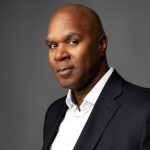
by Amri B. Johnson, CEO of Inclusion Wins and author of “Reconstructing Inclusion: Making DEI Accessible, Actionable, and Sustainable“
Many organizations pride themselves on being meritocracies. This isn’t surprising; who wouldn’t want to reward employees based on talent, effort, and impact? But the idea of merit-based reward isn’t just flawed, it’s a myth. From a diversity, equity, and inclusion (DEI) perspective, meritocracies not only harm those employees who have long been excluded from your culture and success, they harm your entire organization.
We love to talk about performance-based systems because we want to believe that this is the fairest way to compensate employees. While in theory, a person who has honed insights and skills should be granted opportunities to engage in their work at higher levels and be rewarded for doing so, meritocratic-based systems have a dark side that often fosters inequity.
It’s clear that no organization wants to hurt their most vulnerable employees — in fact, many are fervent advocates of DEI today. But embracing meritocracy does just that. Building true inclusion means finding a better way to reward and recognize everyone, not just top performers who are often “on top” in large part due to their privilege and powerful networks.
Read on for some reasons why the meritocracy myth is flawed and damaging.
A meritocracy operates on the assumption that opportunities are fair. (They aren’t.)
For many, the playing field itself is imbalanced from the beginning. Unequal opportunities too often lead to grossly unequal outcomes. Further, the people of greater privilege who rise to the top believe their ongoing reaping of rewards is because they “deserve” it. They are further convinced that their merit is superior to others who have accumulated fewer extrinsic rewards.
People lacking in power and privilege are more likely to struggle in a meritocracy.
Less advantaged people can and do succeed in merit-based systems, but it often takes longer for them to encounter those who create the space for their merit to shine. For everyone who rises to the top, there are thousands of people with great potential who don’t have the fortune of mentors who recognize them. Too many cannot get a foot in the door, not for lack of capability, but for lack of social capital, access, and exposure to networks that can shine light on a path forward.
Surprisingly, meritocracies increase bias.
In 2010, research by MIT professor Emilio Castilla discovered “the paradox of meritocracy,” in that merit-based values had a counterintuitive effect in organizations. It showed that study participants primed for meritocratic values rewarded male employees a 12 percent higher bonus than females. This shows that when an organization emphasizes meritocracy, it could lull individuals into a false belief that their decisions are unbiased because, theoretically, meritocracies are inherently fair.
“Different” and “best” are a false dichotomy.
During the past 50 years, many organizations have been simultaneously working toward establishing meritocracy and committing to increased representation of underrepresented groups. The conflict here is obvious. Leaders often say, “We just want the best candidate,” but in this regard, people are dealing with a false dichotomy: best versus different. If the best candidate happens to be different from the predominant archetype, decision-makers may assume they aren’t the best — simply because they’re not in alignment with the narrative of a meritorious value system.
Meritocracies are still impacted by “who you know.”
Very often, the people who advance fastest or are invited to be part of the most popular projects have had parents, grandparents, and a broad network whom they have been mentored and coached by for years. Yes, these people are usually smart. But they aren’t smarter. They are simply more exposed.
Often the ‘best of the best’ candidates in organizations have had greater opportunities than their less fortunate counterparts. That’s because organizations have long evaluated talent by pedigree and network. This does a disservice to employees or would-be employees who are evaluated based on what is often exclusive criteria—full of requirements mirrored by those who created and are disproportionally advantaged by them.
Meritocracies often identify and then remove “weak links” (to the detriment of the organization).
We’ve all heard that “a chain is only as strong as its weakest link.” But in organizations, the success of the organization depends on the strength of every link. And yet, when people get low ratings in organizations, they often become targets for dismissal. Instead of being strengthened, the weakest link is eliminated. This is a flawed process that leaves people less than empowered, and often victim to a self-fulfilling prophecy of failure, that eventually wreaks havoc on the entire organizational system.
Eventually, the people on top burn out. That’s bad for business.
One unintentional effect of promoting the “best of the best” is that those people get burned out. Yes, they perform well for a certain amount of time, but when their virtues are weighed down by organizational pressure sans adequate complimentary skills from their colleagues who don’t have the highest performance ratings, they go from the “cream of the crop” to sediment on the bottom.
With meritocracy so deeply hardwired into our culture, it will take significant effort to resist the paradigm. That doesn’t mean we can’t find a better way, or that it’s not worth the effort to do so.
So called ‘top performers’ are not the only people who deserve to thrive at work. When people are supported, they are nearly always capable of becoming their best. If you give your employees — all of them — the tools to develop their gifts and talents, they will pay you back with unprecedented confidence, commitment, and great results. That’s a big win for everyone.

Amri B. Johnson is the author of “Reconstructing Inclusion: Making DEI Accessible, Actionable, and Sustainable“. He is a social capitalist, epidemiologist, entrepreneur, and inclusion strategist. As CEO/founder of Inclusion Wins, Amri and a virtual collective of partners converge organizational purpose to create global impact with a lens of inclusion.
via https://www.AiUpNow.com
February 20, 2023 at 09:02AM by Contributor, Khareem Sudlow
